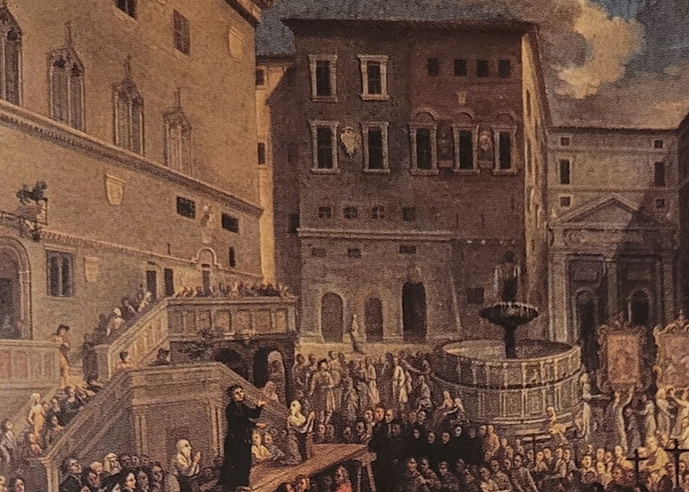About the lecture:
Attending a sermon was a common, potentially memorable, experience in early modern Italian society. During the Protestant and Catholic Reformations, the medieval practice of public preaching continued both as a collective religious ritual and a much-awaited urban event. The sermons delivered by preachers in churches or in the piazze maintained their centrality within the public sphere, shaping religious emotions, enforcing social behaviors, and defining Catholic identity in a changing world. The primary purpose of preaching, as a penitential ceremony to which a transformative power was attributed, was to move to repentance and conversion and to persuade people to change their lives. Sermons were nevertheless also experienced as a public spectacle, a diversionary alternative to Carnival’s entertainments, and an opportunity for social gathering and debate. It offered a staged and ritualized performance with an open ending, the outcome of which depended on the appreciation of civil and religious authorities, and on the – sometimes unpredictable – reactions of mixed audiences, which could play an active role.
Preaching mattered in early modern Italy; and sermons can reveal much about the religious culture and theological issues, and about broader society. In recent decades early modern preaching has attracted much scholarly attention, opening the field to innovative approaches which go beyond the text and content of a sermon, considering the preaching-event in a broad cultural, political, and social framework. By looking behind the scene (or rather, the pulpit), this lecture offers a deeper insight into the cultural, religious, and social landscape of early modern societies, and expands our understanding of Catholic self-fashioning strategies in the age of confessionalization and of early globalization.
About the lecturer:
Michele Camaioni (Ph.D.) is researcher in Early modern history at the University of Roma Tre, Italy. He has been post-doctoral researcher at the Eberhard Karls University in Tübingen (2015-2020) and has held fellowships from the Institut d’histoire de la Réformation in Geneva and the Istituto italiano per gli studi storici in Naples. His research focuses on religious culture and communication in the Renaissance period, with a particular interest in relationships between preaching, printing press and religious dissent. Among his publications are a book about the Capuchin preacher, apostate and exile Bernardino Ochino of Siena (Il Vangelo e l’Anticristo. Bernardino Ochino tra francescanesimo ed eresia, 1487-1547, Bologna, il Mulino, 2018).
To attend the lecture in person, please register at events@roma.uio.no by 25 April
To attend the lecture online: https://uio.zoom.us/j/61324152287
